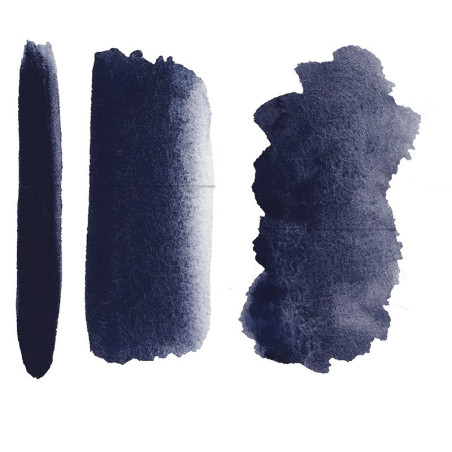















Very nice cold, deep gray, turning bPayne’s Grey - A Textured Grey
PBK11 + PB29 + PB15 - Opaque - Granulating
This hue, due to its harmonious nature and mixing potential, remains a top choice for watercolorists seeking refinement and delicacy in their compositions. It allows for subtle contrasts, making it ideal for working on stormy skies, nocturnal landscapes, and creating atmospheric gradients.lue. Useful as a contrast color.
100% MADE IN BELGIUM
We calculate shipping costs as fairly and accurately as possible
We’re here to answer your questions
Payne’s Grey is an essential shade, valued for its versatility and subtlety. With a dark, slightly bluish tone, this grey offers an elegant alternative to black, providing depth without the overwhelming harshness often associated with pure black. Created in the 18th century by British painter William Payne, it was initially designed as a mixing color to replace the excessive use of carbon black. It quickly became a favorite among artists for its richer, more vibrant undertones, ideal for capturing subtle shadows and textured atmospheres.
Payne’s Grey stands out for its excellent lightfastness.
Combine it with warm yellows like Indian Yellow or Saffron Yellow to create soft, autumnal greens. Pair it with a deep red such as Pyrrole red deep for plum tones or warm shadows. It can also be nuanced with Ultramarine Blue for cooler effects. When blended with natural earth tones like Burnt Sienna, it produces neutral or slightly brownish greys, perfect for landscapes.
Data sheet
| Reference | A10 |
|---|---|
| Pigment: | PBK11 PB29 PB15 |
| Mono-pigmented: | No |
| Granulation: | Granular |
| Opacity: | Opaque |
| Tint power: | Very high |
| Pigment family: | Synthetic mineral + organic pigment |
| Binder: | Distilled water, gum arabic, honey, vegetal glycerine |
| Cotation - Blue lightfastness scale: | 8 |
| Lightfastness: | Good |
| Percentage of méthylisothiazolinone (preserservative): | between 0,1 and 0,7% |
| Colors | grey |